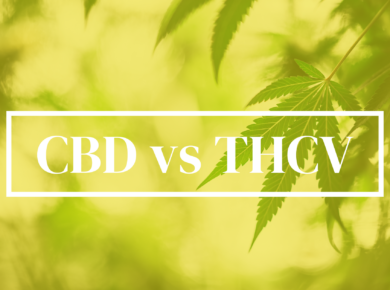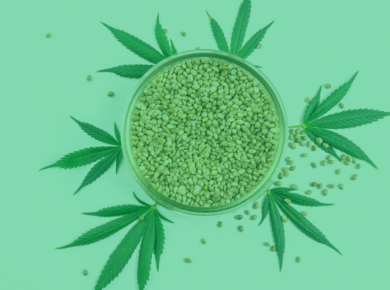Dive deep into the enchanting world of cannabinoids with CBDa and CBC, each revealing its own unique tale and properties. Both CBDa (Cannabidiolic Acid) and CBC (Cannabichromene) are integral components found in hemp and cannabis, yet they dance to their own tunes in the biological symphony.
CBDa: The Precursor and its Charm
CBDa, often found basking in raw hemp and cannabis, is the precursor to the well-renowned CBD (Cannabidiol). Through a transformative process known as decarboxylation, whereby heat plays a pivotal role, CBDa metamorphoses into CBD. While non-intoxicating, CBDa is believed to whisper to various systems within the human body, albeit further research is required to decipher these intricate conversations.
CBC: The Original and its Elegance
Conversely, CBC, a somewhat shadowed, non-intoxicating cannabinoid, stands proud among the original cannabinoids. Produced along with CBD and THC by the cannabis plant, CBC engages with receptors within the body’s endocannabinoid system, playing a role in numerous physiological sonatas.
A Symphony of Differences
Although both CBDa and CBC originate from the lush fields of hemp and cannabis plants, they diverge in their genesis and potential dialogues with the human body. It’s imperative to note that the exploration into these cannabinoids is an ongoing journey, with our understanding of their narratives and effects continuously unfolding.
Many States allow hemp derived cannabinoids under the 2018 Farm Bill as long as they contain less than .3% D9 THC. Some States have explicitly banned cannabinoids like Delta 8, so check your local rules and regulations before purchasing.
Here’s the rules for Kush.com and more details
Frequently Asked Questions (FAQs)
- What is CBDa and its Relation to Hemp? CBDa, gleaming as a cannabinoid within raw hemp, acts as the prelude to CBD, transforming through decarboxylation, and is often found in rich concentrations within specific hemp strains.
- How Does CBC Intertwine with Hemp? CBC, a cannabinoid in its own right within hemp, stands among the prominent cannabinoids of the cannabis plant. Unlike CBDa, CBC is directly synthesized from CBGa (Cannabigerolic Acid), not through the transformation of another cannabinoid.
- How Do CBDa and CBC’s Effects Contrast? CBDa and CBC, while both engaging with the body’s endocannabinoid system, do so in distinct manners. CBDa dialogues with the COX-2 enzyme, influencing inflammation and pain, while CBC is believed to interface with various receptors within the endocannabinoid system, potentially orchestrating a holistic balance.
- Can CBDa and CBC be Discovered in Hemp Products? Indeed, both CBDa and CBC can be encountered within full-spectrum hemp products, which embrace all cannabinoids, terpenes, and other compounds native to the hemp plant.
- How are CBDa and CBC Extracted from Hemp? Both CBDa and CBC are gleaned from hemp utilizing methods such as CO2 extraction, which employs pressurized carbon dioxide to coax the desired cannabinoids from the hemp plant, revered for its safety, efficiency, and preservation of cannabinoid integrity.
Shop
Similar Product Searches You Might Be Interested In:





